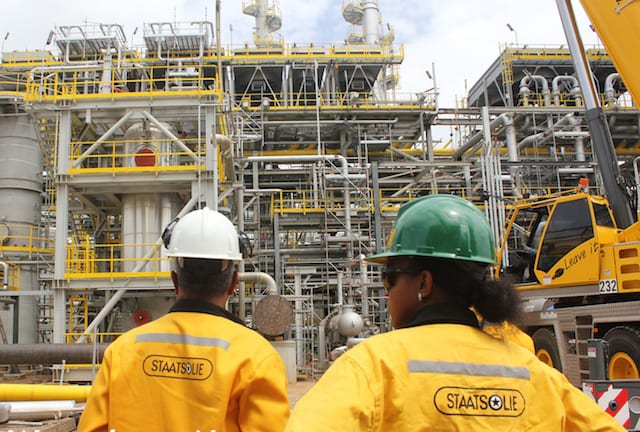Suriname, Guyana’s neighbour to the east, is looking to draft its local content policy by early 2022. Disclosing this was the country’s Minister of Natural Resources, David Abiamofo during his keynote address at the Suriname International Petroleum and Gas Summit and Exhibition (SIPEX) this Tuesday.
Abiamofo whose portfolio extends into the management of Suriname’s oil and gas, indicated that a working group similar to one Guyana established for its own local content policy, has been identified. This group he noted, consists of representatives from the Government of Suriname as well as representatives from the private sector and civil society.
Further to this, the Natural Resources Minister said this body is tasked with preparing comprehensive and strategic regulatory and institutional frameworks.
“The preliminary findings were already presented in the stage of aligning the first draft according to the recommendations. Presumably, at the beginning of 2022, a draft local content policy will be in place,” Abiamofo said.
At present, oil companies are mandated to provide a comprehensive report revealing the advancement of indigenous involvement in the company. Further to this, on a quarterly basis, oil companies are required to provide a list of all local purchases.
Suriname moving to develop “fit for purpose” shore base facility
The Production Sharing Contracts also require oil companies to continuously train locals in technical, executive, and managerial capacities.
Also, in another step towards maximizing local content, the national oil company of Suriname, Staatsolie, in August moved to ensure that food and beverages for offshore drilling rigs in Block 58 are supplied entirely by Suriname.
“Deliveries are made with special supply vessels, three of which are dedicated for the Suriname operations. Shipments take place from Kuldipsingh Port Facilities on the Suriname River in Dijkveld. The supply vessels bring drilling waste from the rigs ashore for treatment and carry food and beverage supplies to the drilling rigs. Diesel for the rigs and supply ships is also purchased in Suriname. The revenues from the diesel deliveries can reach US$30 million per year,” Staatsolie had explained.
Guyana and Suriname: the role of emerging oil markets on the path to net zero
In the case of Guyana, the Government continues to reaffirm its commitment to have local content legislation in place by the end of the year. Just yesterday, Guyana’s Ministry of Natural Resources revealed that it is continually working to enhance local content so as to create a sustainable development pathway for all Guyanese.



